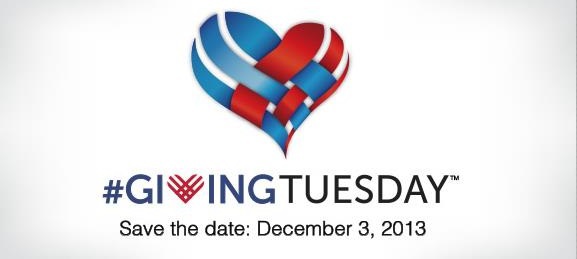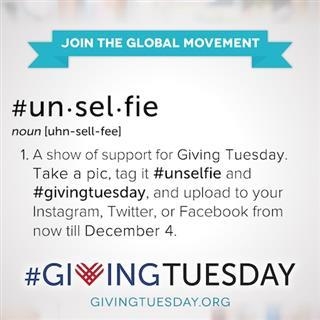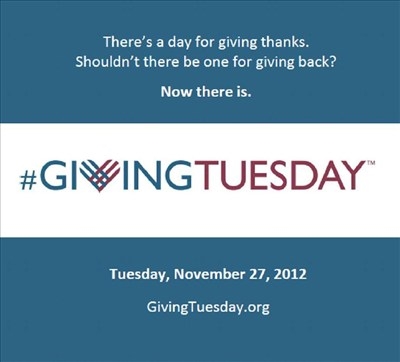National Day of Giving 2024 is on Friday, November 29, 2024: National History Day!!!?
Friday, November 29, 2024 is National Day of Giving 2024. Giving Tuesday Giving Tuesday
As an Amazon Associate I earn from qualifying purchases.

Below are a few ideas with one link to additional information. Each idea involves an "Innovation"; each has an interesting "historical" context; and each has resulted in changes that have had a significant impact upon History. Additionally, these ideas are not difficult to research, and each can be the subject of an exhibit.
__The Innovation: The AUTOMOBILE: "In terms of the lives of average people, there is little doubt that the automobile is the most revolutionary invention in the history of transportation since the wheel. The basic premise of the automobile is simple; choose a wheeled vehicle from the many types typically pulled by horses or oxen, add a motor and create a self-propelled, personal transportation vehicle." [I checked the "Sample Topics To Consider" at the National History Day internet site and was surprised that the automobile was not a "sample topic."]
Please see the following and the links thereon:
__The Innovation: The LASER: The invention of the laser, which stands for light amplification by stimulated emission of radiation, can be dated to 1958 with the publication of the scientific paper, Infrared and Optical Masers, by Arthur L. Schawlow, then a Bell Labs researcher, and Charles H. Townes, a consultant to Bell Labs. That paper, published in Physical Review, the journal of the American Physical Society, launched a new scientific field and opened the door to a multibillion-dollar industry." The development of the laser and its many impacts upon society seem like an ideal topic.
Please see the following and the links thereon:
__The Innovation: The PRINTING PRESS: "In 1440, German inventor Johannes Gutenberg invented a printing press process that, with refinements and increased mechanization, remained the principal means of printing until the late 20th century. The inventor's method of printing from movable type, including the use of metal molds and alloys, a special press, and oil-based inks, allowed for the first time the mass production of printed books." In the span of time between the printing press and "electronic" communication, the principal tool for human communication was print! [I checked the "Sample Topics To Consider" at the National History Day internet site and was surprised that the printing press was not a "sample topic."]
Please see the following and the links thereon:
__The Innovation: Development of the ELEVATOR: "In 1852 Elisha Graves Otis invented the first safety brake for elevators. With his installation of the first safe elevator in 1853 he literally started the elevator industry. His invention enabled buildings – and architects’ imaginations – to climb ever skyward, giving a new and bolder shape to the modern urban skyline. Today you can ride an Otis elevator with confidence, knowing that it represents 150 years of experience in both safety and quality."
Please see the following and the links thereon:
The Innovation: PASTEURIZATION: "French chemist Louis Pasteur was the founder of microbiological sciences. Pasteur's studies of fermentation began in Lille when he was approached by an industrialist disturbed because undesirable products often appeared during the fermentation of sugar into alcohol by yeast. Pasteur postulated that these products came from microscopic organisms other than yeast and suggested that each particular type of fermentation was the effect of a specific microorganism, called the GERM [emph. added]. He soon illustrated this revolutionary theory with brilliant studies on the conversion of sugar....Spoilage of perishable products could be prevented by destroying the microbes already present in these products and by protecting the sterilized material against subsequent contamination. Pasteur applied this theory to the preservation of beverages and foodstuffs, introducing the technique of heat treatment now known as pasteurization."
Please see the following:
__The Innovation: Development of the PNEUMATIC TIRE (air-inflated, rubber tire): "In 1887, John Dunlop developed the first practical pneumatic tire for his son's tricycle, tested it, and patented it on December 7, 1888. Dunlop’s development of the pneumatic tire arrived at a crucial time in the development of road transportation. Commercial production began in late 1890 in Belfast, Ireland. Dunlop partnered with William Du Cros to form a company that would later become the Dunlop Rubber Company."
Please see the following and the links thereon:
Good luck with your project!

Why not have just one national primary day for the Presidential candidates?
One national primary day would not be in the best interest of the country. There is an advantage to a system which gives candidates the chance to get known by voters in a handful of smaller states on a one-on-one basis. Having one primary day would merely increase the advantage of name recognition and a large war chest.
My own preference is for a handful of randomly chosen small states (we are probably stuck with Iowa and New Hampshire being automatically included) scattered over the first month followed by rotating regional primaries with a three week gap between each round. This system gives every state the chance to "matter" while allowing the field to narrow a bit before the final choice has to be made. With eight candidates running in each party, a national primary would either mean a deadlocked convetion (if we kept with the convention system) or a person getting the nomination with only 25% support.

Plz tell me something about National Science Day 28th Feb.?
National Science Day
National Science Day is celebrated in India on February 28 each year to mark the discovery of the Raman effect by Indian physicist Sir Chandrasekhara Venkata Raman on 28 February 1928.
For his discovery, Raman was awarded the Nobel Prize in Physics in 1930.
History of National Science Day
In 1986, the National Council for Science and Technology Communication (NCSTC) asked the Government of India to designate February 28 as National Science Day. The event is now celebrated all over the country in schools, colleges, universities and other academic, scientific, technical, medical and research institutions. On the occasion of the first NSD (National Science Day) on 28 February 1987, the NCSTC announced institution of the National Science Popularization awards for recognizing outstanding efforts in the area of science communication and popularization. Sir C. V. Raman worked at Indian Association for the Cultivation of Science, Kolkata, West Bengal, India during 1907 to 1933 on various topics of Physics making discovery of the celebrated effect on scattering of light in1928, which bears his name and that brought many accolades including the Nobel Prize in 1930. The American Chemical Society designated the Raman Effect as an International Historic Chemical Landmark in 1998.
2009
The focal theme for the year 2009 was "Expanding Horizons of Science".
On 28 February 2009, five institutions in the country were presented National Award for Science Communication by the Indian Department of Science and Technology. These awards are presented to recognize the efforts of individuals and government and non-government bodies for the popularization of science in the country.
The highest award in 2009 was given to the Vikram Sarabhai Community Science Centre for its contribution to science-related learning material and conducting training programs on science education.
A Festival of Measurement and Space Fair was held at the Nehru Planetarium, New Delhi.
Dr. Pramod Kumar Mohapatra, G.S. Unnikrishnan Nair and Ms. Meenu Khare were awarded one lakh rupees for their individual contributions to the field. Jidnyasa Trust of Thane also received one lakh rupees for setting up a science activity center.it is to make people aware about the science and techonology.
2012
The focal theme for 2012 National Science Day is “Clean Energy Options and Nuclear Safety” As the nation will observe National Science Day on February 28, the citizens will see a slew of activities at Science City which has planned a five-day Science Carnival on theme of youth and science. The science day is observed every year to commemorate Dr C V Raman's find of Raman Effect for which he later got Nobel Prize for physics in 1930.
"The Science Carnival is going to be an event with a series of scientific activities and programs involving school and college students, eminent scientists and faculties of the state and country. We want to provide a real platform for the budding scientists to make their career and profession in science," said a senior Science City official. Officials said that they are expecting nearly 1 lakh students and science enthusiasts to visit Science City during this period.











